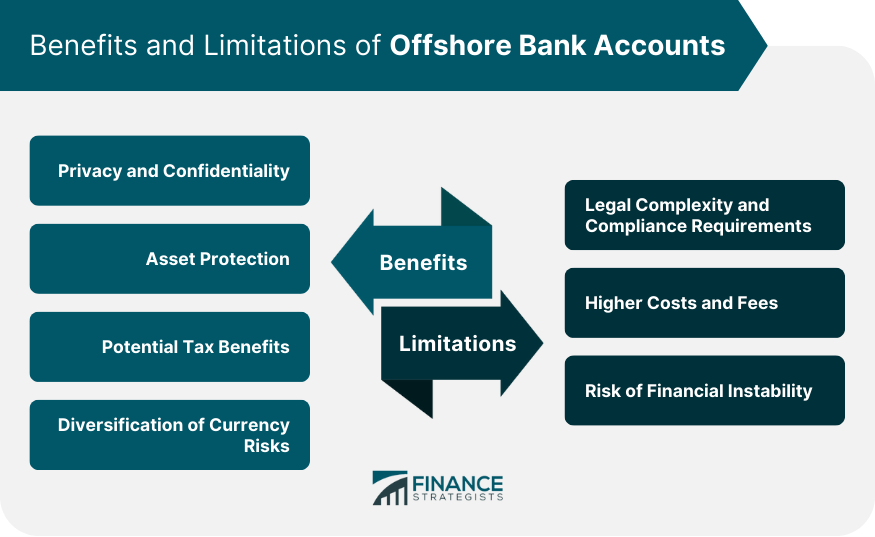Offshore Company Formation: Building Your Company Beyond Borders
Comprehending the Legal Effects of Offshore Company Development

Legal Structure for Offshore Business
When developing an offshore company, recognizing the lawful framework governing its formation and operation is vital for conformity and threat management. Offshore business run under details regulations and regulations that differ from those of onshore entities. The legal framework for overseas firms generally includes provisions for business enrollment, shareholder requirements, director responsibilities, and tax obligations.
Company registration involves submitting the necessary documentation to the ideal governing authorities in the picked territory. This process frequently requires detailed information concerning the firm's structure, shareholders, and intended tasks. In addition, offshore companies must follow particular shareholder requirements, such as keeping a register of investors and keeping this information approximately day.
Directors of offshore firms have fiduciary responsibilities to act in the ideal passions of the business and its investors. By adhering to the legal structure controling offshore business, businesses can operate with self-confidence while decreasing legal dangers.


Tax Obligation Ramifications and Regulations
Recognizing the tax implications and policies is critical when thinking about the establishment and operation of an overseas company. Offshore business are often subject to positive tax obligation regimes, providing minimized or absolutely no tax obligation rates on foreign-earned earnings.
Tax obligation guidelines for offshore companies differ substantially across territories, and it is vital to look for skilled guidance to understand the details demands and obligations. Detailed understanding of tax laws and laws, as well as appropriate tax obligation planning, are essential to make certain the certified and successful procedure of an offshore business.
Conformity Demands and Coverage
Making sure conformity with regulatory demands and keeping precise coverage are vital aspects of taking care of an offshore business successfully and transparently. Offshore business have to stick to the regulations and laws of both the jurisdiction in which they are included and any various other pertinent jurisdictions where they carry out company. Conformity demands typically include submitting yearly returns, financial statements, and tax records with the ideal authorities. Failure to satisfy these commitments can result in penalties, fines, and even the abrogation of the firm's enrollment.
In addition to regulative compliance, offshore firms are commonly based on reporting requirements to make certain openness and avoid illegal activities such as cash laundering or tax obligation evasion. Reporting obligations may include divulging information concerning the company's possession framework, financial activities, and recipients. This details may need to be shown to regulatory bodies, tax authorities, or other governmental firms, relying on the territory.
Preserving accurate and complete documents is crucial for showing conformity and reacting to any type of queries or audits effectively. Offshore business need to apply robust reporting mechanisms and internal controls to make certain that they satisfy all legal needs and operate with honesty.
Property Security and Privacy Rules
In the world of overseas firm development, an essential consideration is the interplay in between property defense methods and personal privacy legislations. By structuring possessions within an offshore company, individuals can safeguard their wide range and expand their holdings across different lawful structures. Eventually, recognizing the intricate partnership in between possession protection approaches and personal privacy regulations is extremely important when taking into consideration overseas business development.
Threats and Difficulties to Consider
When venturing into offshore company formation, sensible consideration of prospective threats and challenges is crucial for informed decision-making and tactical preparation. Additionally, political instability or modifications in overseas territories can position a danger to the connection of operations and the security of properties held by Your Domain Name the offshore company.
Difficulties might additionally look at more info arise concerning the intricacy of offshore company structures and the requirement for experienced lawful and financial guidance to browse the intricate regulative frameworks of various territories (offshore company formation). Keeping conformity with differing global laws and guidelines, along with possible language obstacles and social distinctions, can further complicate the overseas company development process. It is vital to be mindful of these threats and difficulties before proceeding with offshore business formation to reduce potential mistakes and guarantee a legitimately audio and smooth facility
Verdict
To conclude, overseas firm development includes navigating intricate lawful frameworks, tax obligation effects, compliance requirements, and personal privacy regulations. Comprehending these aspects is crucial for minimizing threats and difficulties connected with overseas company procedures. It is important for businesses and individuals taking into consideration offshore firm formation to look for expert guidance to make sure compliance with regulations and to shield their possessions effectively.
The lawful structure for offshore firms generally consists of provisions for firm registration, investor needs, More hints director duties, and tax responsibilities.
Supervisors of offshore companies have fiduciary obligations to act in the best rate of interests of the firm and its shareholders. By sticking to the lawful framework regulating offshore firms, businesses can operate with self-confidence while minimizing legal dangers.
In addition, political instability or changes in overseas jurisdictions can present a threat to the connection of operations and the security of possessions held by the overseas firm. - offshore company formation
In conclusion, offshore business development includes browsing intricate legal frameworks, tax ramifications, compliance demands, and privacy legislations.